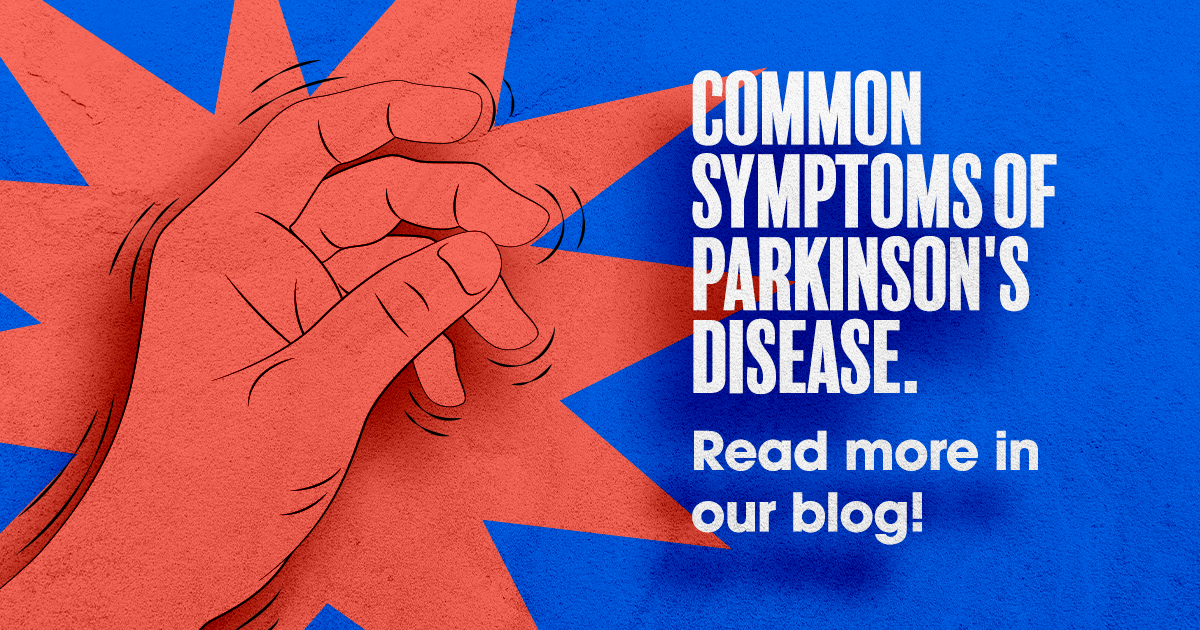An American is diagnosed with Parkinson’s disease every 9 minutes. Presently, there is no definitive test to diagnose Parkinson’s. So, a physician will look for whether the possible symptoms of Parkinson’s disease are present or not by talking with the patient while completing a thorough neurologic assessment. Parkinson’s disease, or PD, is a chronic, progressive movement disorder. Other medical conditions may cause similar symptoms to PD. Here are some of the common symptoms, and some advice on the next steps if the symptoms you have concern you.
Motor and Non-Motor Symptoms
Parkinson’s manifests itself in motor and non-motor symptoms. Not all symptoms must be present to be diagnosed with PD. The five main motor symptoms include:
- Tremor– Slow, rhythmic, shaking that typically occurs at rest. It starts in one hand, foot, or leg.
- Rigidity– Tightness or stiffness of the limbs or torso.
- Bradykinesia (slow movement)– Generalized slowness in body movements, mask-like facial expression, decreased blink rate, and problems with fine motor coordination.
- Balance Problems– Inability to maintain an upright, steady posture.
- Walking/Gait Problems– Decrease in the natural swing in one or both arms, shuffling gait, and episodes of freezing (like feet are stuck to floor).
The non-motor symptoms can often be missed because when people think about PD, they mainly think tremor or another movement issue. A tremor does not have to be present in those diagnosed with Parkinson’s. Below are some non-motor symptom examples, and you can view the complete list here.
- Sense of Smell Disturbances– Reduced sensitivity to odors or loss of smell.
- Sleep Problems– Inability to fall asleep or stay asleep.
- Depression and Anxiety– Fairly common and can range in severity.
- Weight Loss– A common symptom typical in the later stages.
- Pain– Specific types of pain are associated with PD, but it can also exacerbate pain caused by another source.
Where to Start
If you or a loved one are experiencing symptoms of PD or any symptoms that concern you, always talk with your doctor. Medication side effects, essential tremor, and other syndromes may mimic PD symptoms. In addition to taking a history and performing a detailed neurologic examination, physicians sometimes use brain imaging to help support a specific diagnosis.
Potential New Options Through Clinical Trials
Clinical research is helping to further our knowledge of Parkinson’s disease. Through this process, we can discover new and improved ways to prevent, diagnose, and provide better options for those with PD. To learn more about our upcoming Parkinson’s clinical research studies, click here.
References:
https://www.apdaparkinson.org/what-is-parkinsons/diagnosing/






